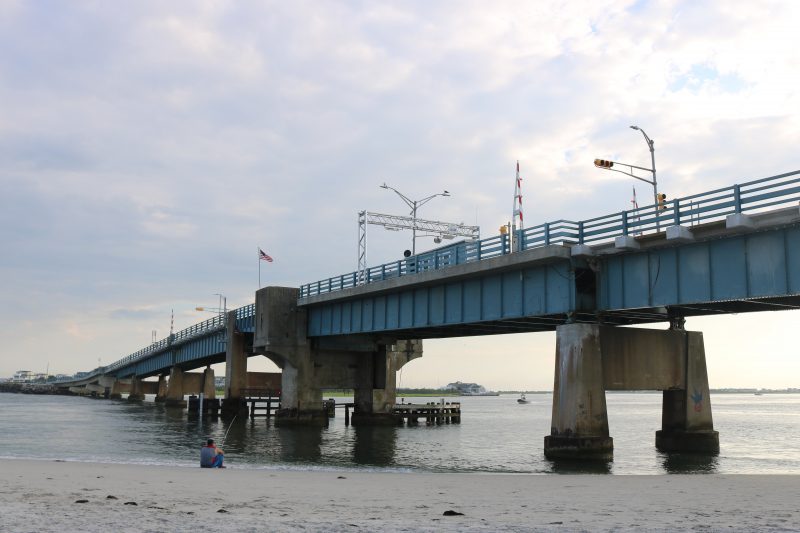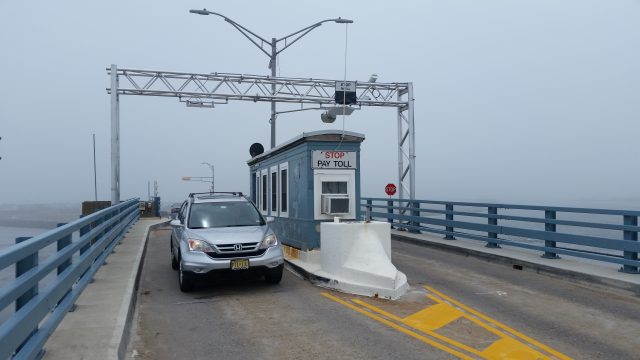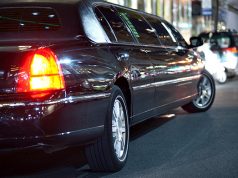By DONALD WITTKOWSKI
Motorists crossing over the five bridges connecting the Cape May County beach towns along the Ocean Drive are able to pay their tolls with cash and coins again.
The Cape May County Bridge Commission resumed cash payments at its toll booths on Tuesday after they were suspended on March 26 in response to the coronavirus pandemic.
Among other safeguards, toll collectors are now wearing masks and gloves to protect them and the motorists who stop to pay their fares.
“Our collectors need to wear masks and gloves when dealing with the public. Automatic hand sanitizer dispensers were installed in the booths to make it easier for them to sanitize their hands frequently,” said Karen Coughlin, the bridge commission’s executive director.
Unlike some other agencies that operate toll roads or bridges, the commission will not install plexiglass shields to separate the collectors from motorists because of the way its booths are designed.
“The installation of barriers wasn’t feasible on the booths with our layout and the collectors needing to access the doorway to exit and enter the booth. They also need to be able to lean out to reach the vehicle at times and the plexiglass would impede their ability to do that,” Coughlin said.

The toll is $1.50 to cross each of the commission’s bridges, the Ocean City-Longport Bridge, Corson’s Inlet Bridge, the Townsends Inlet Bridge, the Grassy Sound Bridge and the Middle Thorofare Bridge. The bridges connect the Cape May County resort towns from Ocean City to Cape May along the scenic Ocean Drive.
The Cape May County Bridge Commission and other road and bridge agencies suspended cash tolls in March as a precaution against COVID-19. The move eliminated the person-to-person contact between motorists and toll collectors and conformed with social distancing guidelines to help slow the spread of the virus.
Now that toll collectors are being protected with masks, gloves, hand sanitizer and, in some cases plexiglass shields, the agencies are resuming cash payments.
The bridge commission has continued to collect tolls electronically through the automated E-ZPass system. Motorists not having E-ZPass have been billed by mail. A photo was taken of their license plate while passing through the toll plaza and the bill was sent to the vehicle’s registered owner.
Bills began going out in the mail in the first week of May. The bill will be for the regular cash toll rate. No additional administrative fees will be charged if the bill is paid within 30 days, Coughlin said.
Overall, cash-paying drivers represent only about 20 percent of the bridge commission’s traffic. There has been no strain on the agency’s finances while waiting for cash customers to mail in their payments, Coughlin said in April.








